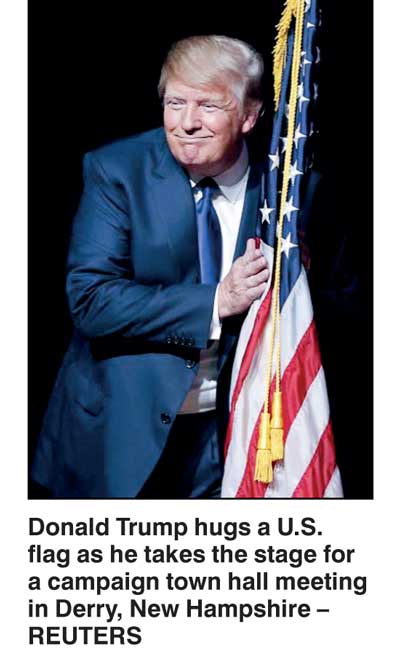Tuesday Feb 24, 2026
Tuesday Feb 24, 2026
Wednesday, 14 December 2016 00:01 - - {{hitsCtrl.values.hits}}
Reuters: Donald Trump’s planned tax cuts and regulatory rollbacks will propel the world’s biggest economy out of its slow-growth  doldrums, economists sympathetic to the U.S. president-elect’s policies say.
doldrums, economists sympathetic to the U.S. president-elect’s policies say.
Fifty-three of 63 economists and business school professors surveyed by Reuters who either said they voted for Trump or broadly support his economic proposals thought the 3% to 4% growth Trump promised in his campaign is achievable.
They were among a group of 305 economists who signed a letter criticizing Hillary Clinton’s economic policies ahead of the November presidential election.
“I’m very enthusiastic about prospects for the economy under Trump,” said Ann Sherman, a finance professor at DePaul University in Chicago who voted for Trump. She was among the overwhelming majority of respondents to the Reuters survey who thought his plans to cut taxes and streamline regulations would jumpstart growth.
Financial markets seem to agree. U.S. stocks have soared to record highs in the weeks since the election, and bond yields have perked up to levels more consistent with faster growth and inflation.
Mainstream economists are not buying it. The U.S. economy did grow at a 3.2% annual pace last quarter, government figures show. But economists surveyed by the National Association for Business Economics after the election forecast annual growth between 1.6% and 2.5% for the next five years.
Federal Reserve policymakers release their own forecasts next week. In September, they projected annual growth of 2% or less for the next several years. Since the election, many have said they know too little about the new president’s policies to justify any big revisions.
The optimistic view from Trump-supporting economists derives from their expectation that scrapping Obamacare, loosening rules on banks and energy companies, and lowering taxes can ease two of the U.S. economy’s most stubborn headwinds - slow productivity growth and a shrinking labour force.
“There are so many bad regulations and disincentives to work holding the economy back that it won’t be hard to get some momentum if they are fixed,” said Robert Whaples, an economics professor at Wake Forest University in Winston-Salem, North Carolina.
It also stems from their belief Trump will temper his anti-trade rhetoric, which two-thirds of the economists who endorsed his policies viewed as anti-growth.
In the NABE survey, more economists picked infrastructure spending than any other policy option as the key thing the next president can do to boost the economy. Just 11 of 63 Trump-supporting economists said it should be a priority; 14 said it should be dropped.